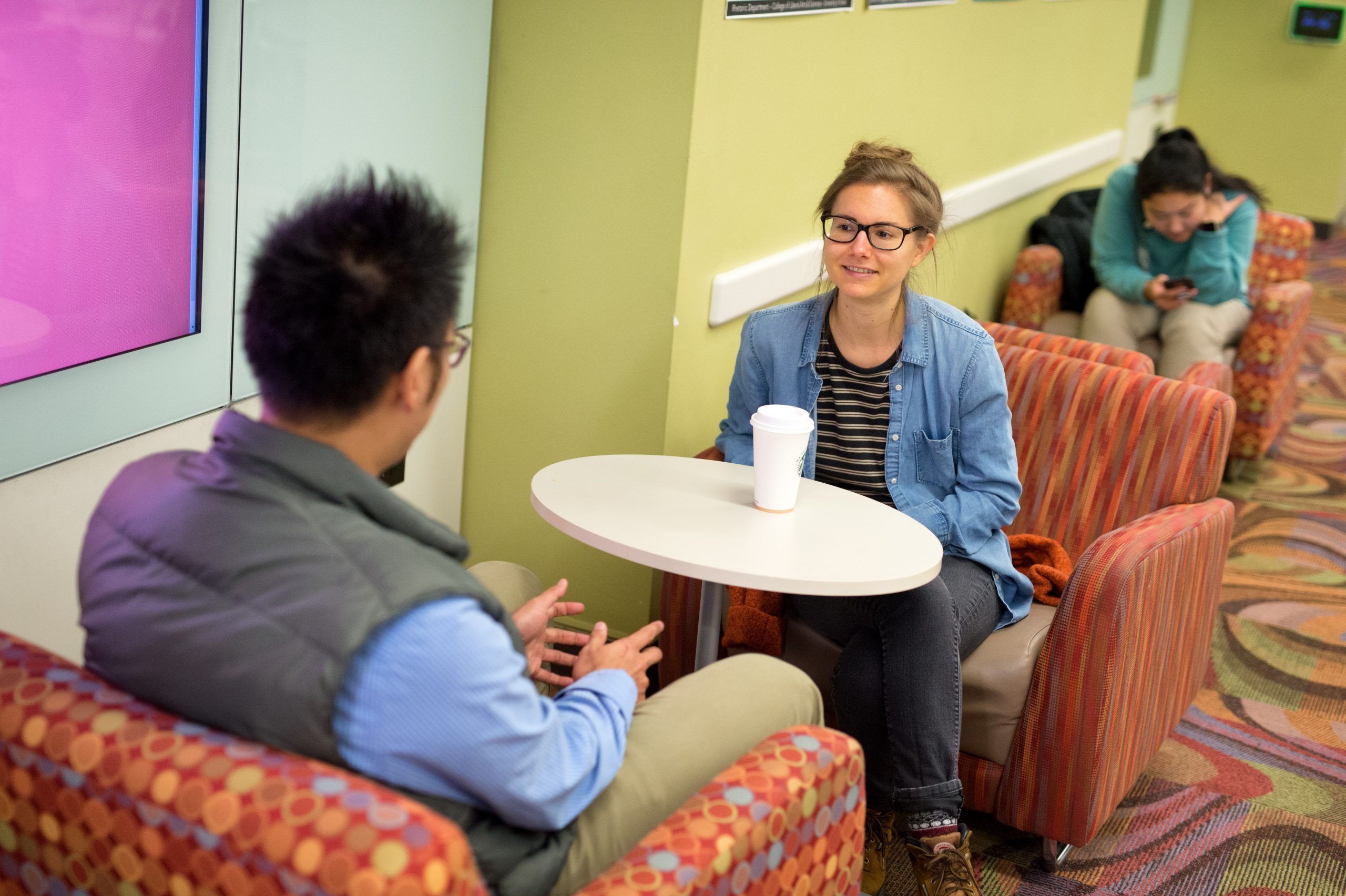8 Building a support network for your teaching

A teaching support network is a community of people who can help you by sharing new ideas, listening to your experiences, and providing support toward your teaching goals. Here are a few suggestions for where you might start building your network:
- For new instructors, your mentor, departmental executive officer (DEO), or peers in your department can discuss teaching with you, observe you teach, and provide feedback and ideas. For TAs, a faculty mentor, a supervising faculty member, or your director of graduate studies (DGS) are good places to start.
- Your college or department may offer formal training or interactive workshops for new instructors and TAs before and during the fall semester.
- Colleagues who have also taught the same course or similar courses may have insights into disciplinary aspects of teaching, signature pedagogies, and the specific context of your department.
- The UI College of Education offers a Graduate Certificate in College Teaching for graduate students who are interested in pursuing formal coursework and training on teaching.
- The UI participates in a national teaching support network called the Center for the Integration of Research, Teaching, and Learning (CIRTL). Participation is free and has multiple tiers of certification depending on your needs and interest.
Center for Teaching staff members are happy to be a part of your support network and help you to connect to people who can provide other support specific to your needs. Our services are free, voluntary, and confidential. Opportunities to engage include:
- One-on-one teaching conversations where you can thought-partner with an expert from the Center for Teaching on any topic related to teaching and learning (brainstorm ideas, request support for teaching statements and portfolios, get help with difficulty in the classroom, explore evidence-based strategies to achieve a teaching goal).
- Help with requesting, interpreting, and responding to midsemester feedback from your students, including through Classroom Assessments by Student Interview (CLASSI).
- Formative classroom observations focused on feedback and goal setting rather than evaluation. These informal consultations can help inform your growth as a teacher.
- Pedagogical sparkshops, workshops, and institutes (campus-wide, collegiate, and departmental) that are designed to facilitate collaborative conversations on course design, inclusive teaching, active engagement, and many other teaching topics. A poster with detailed information about these events is shared before the beginning of every semester. To subscribe, visit our website.
Center for Teaching ongoing programs and initiatives include:
- Active learning and TILE (Transform, Interact, Learn, Engage): support for active, collaborative, and inquiry-guided learning, including in TILE and other classrooms.
- Inclusive pedagogies: Inclusive Teaching in Practice: partners with departments and colleges to nurture iterative, unit-wide discussions about evidence-based teaching practices that support welcoming and equitable classrooms. Inclusive Teaching Book Club welcomes participants to explore a book on inclusive pedagogy in a cross-disciplnary space.
- Early career: support for faculty members in their first years at Iowa, including the Early Career Faculty Academy for new tenure-track assistant professors.
- Course design: support for designing and redesigning courses, including the annual Course Design Institute.
- Scholarship of Teaching and Learning (SoTL): structured research on your own teaching, leveraging methodologies appropriate to your discipline.
- Assignment and assessment: support for developing aligned, transparent, authentic assignments, assessments, and evidence-based grading practices.
- Graduate student and postdoctoral instructor support: Graduate students and postdocs can access free and confidential support related to any teaching topic, including teaching-related materials for the academic job market, by reaching out to the Center for Teaching. We also support graduate students via the Graduate Teaching Fellows program; an annual, campus-wide New TA Orientation; departmental workshops for graduate students on teaching topics; and support for faculty mentors who are organizing instructional teams that incorporate graduate students.
- Learning communities for TAs and faculty members: ongoing instructor-led conversations focused on pedagogical topics.
- OTLT monthly e-newsletter (subscribe to the newsletter)
- The Center for Teaching’s Jean Florman Honorary Lending Library, which contains books, journals, and other media about teaching and learning in higher education.

Feedback/Errata